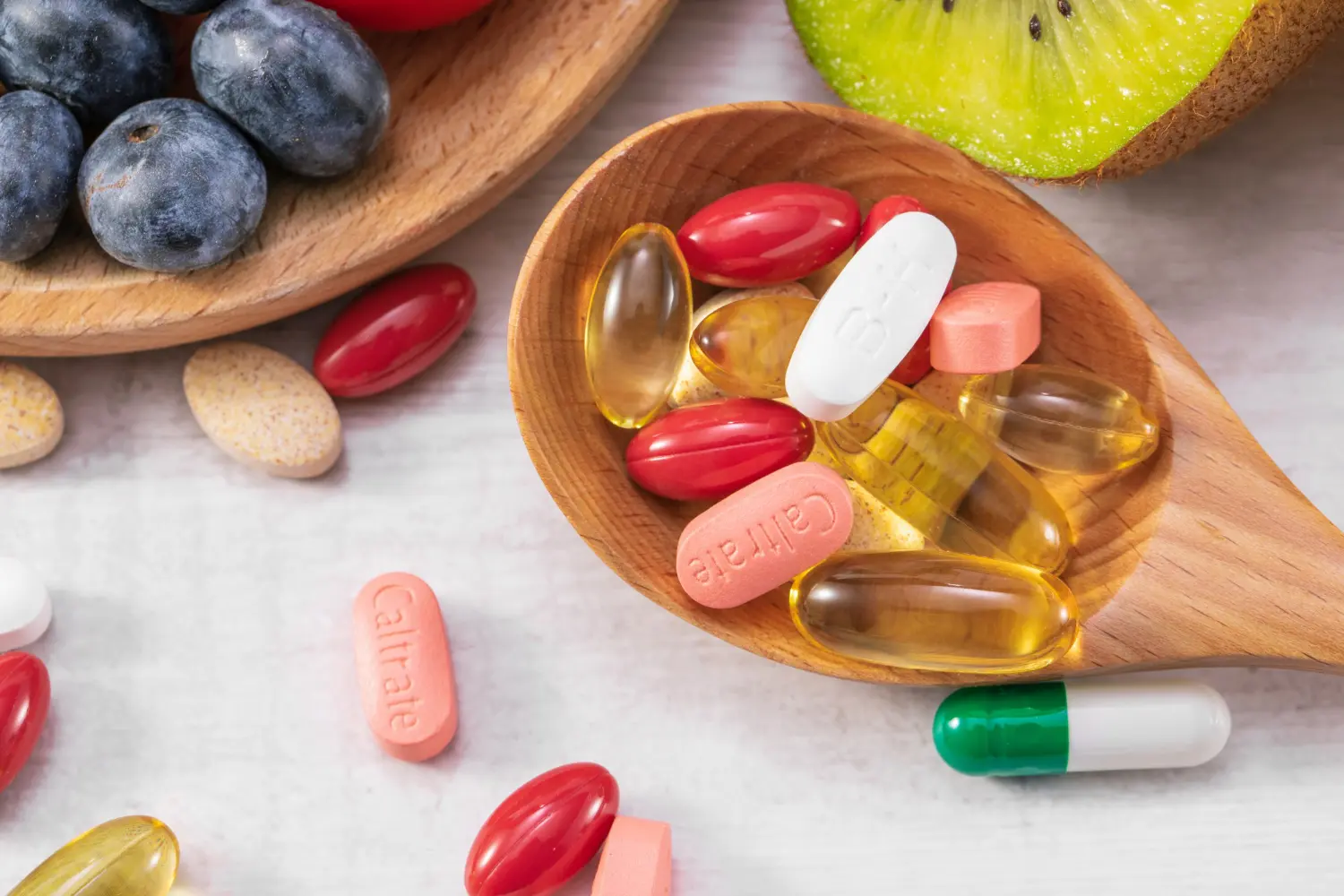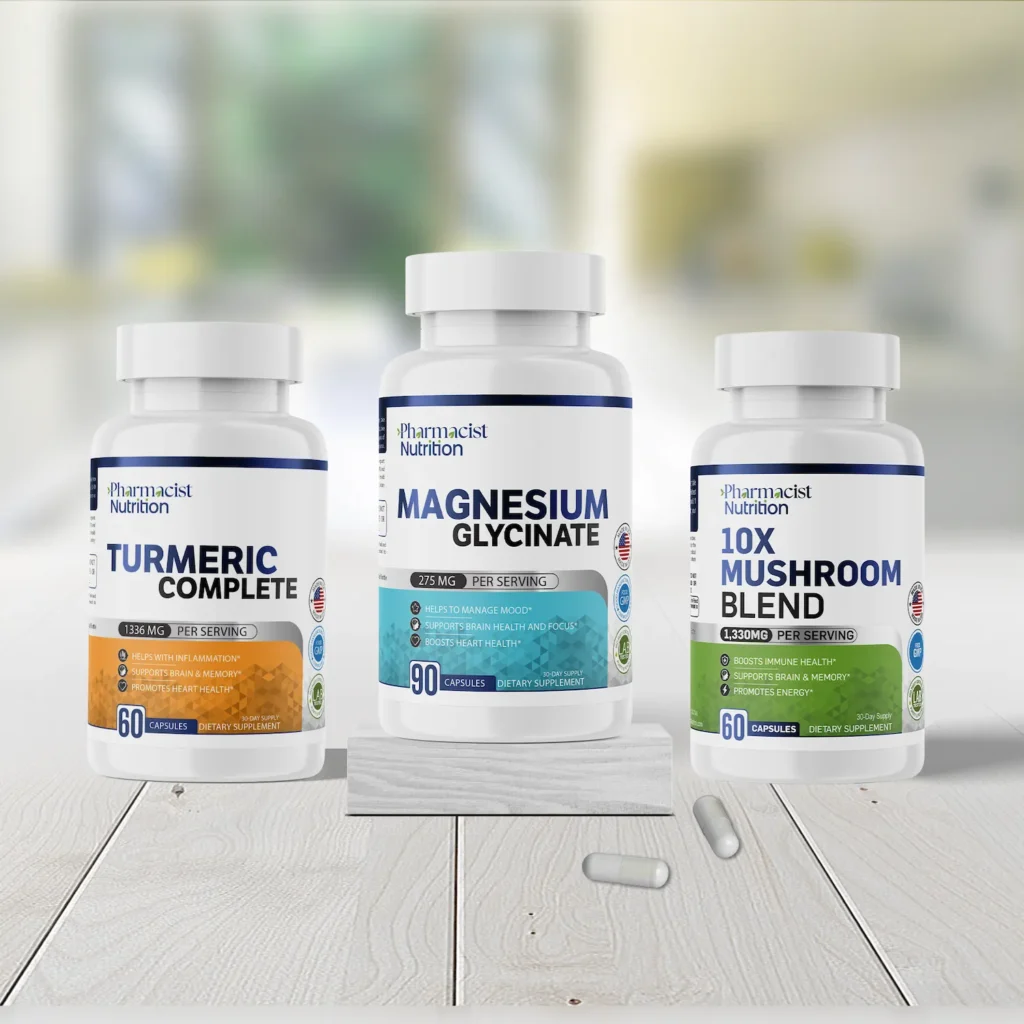
Have you ever felt tired and you just don’t know why? Like an ongoing lack of energy despite getting enough sleep?
Have you noticed a decline in your cognitive function, like difficulty concentrating, memory issues, or a general sense of mental fog?
Maybe you’ve experienced unusual sensations like tingling or numbness in your hands and feet, or even noticed your skin becoming a little more pale. These symptoms might seem unrelated… unconnected, but they can all point to a common underlying issue: a deficiency in Vitamin B12.
My name is Albert and I’m a pharmacist with over a decade of experience in community pharmacy and today we’re going to be talking about Vitamin B12, what it is, how it affects you, how much you need, and the best ways to go about doing that.
Vitamin B12, also known as cobalamin, is a water-soluble vitamin that is essential for our health because it’s included in an array of functions all over our body. For instance, B12 plays a significant role in the formation of red blood cells. Healthy red blood cells rely on adequate levels of B12. If you don’t have enough B12, it can result in conditions like megaloblastic anemia, where the body produces abnormally large and also dysfunctional red blood cells.
What happens is B12 acts as a cofactor for methionine synthase, an enzyme critical in the production of tetrahydrofolate or THF and methionine from another amino acid called homocysteine. The tetrahydrofolate is further converted into thymidine. If you’ve ever taken a biology class in high school you may remember that thymidine is one of four bases in DNA.
Without enough B12, the development of all cells are affected including red blood cells.
Red blood cells undergo a series of transformations in your bone marrow going from large immature cells called erythroblasts into the small functional red blood cells and we need B12 for every step of this manufacturing process. And when we have large dysfunctional red blood cells that are really bad at transporting oxygen, we call them megaloblasts. Thus, megaloblastic anemia.
Now imagine not getting enough oxygen in your body.
Along those same lines, B12 plays a role in energy production. It helps convert food into glucose, which the body ultimately uses for energy.
A short explanation of what happens here is B12 helps an enzyme create succinyl-CoA, which is the beginning of a process called the Citric Acid Cycle also called the Krebs cycle, which is a biochemical process that makes ATP, the cellular energy currency of your entire body.
In addition, we mentioned previously that B12 helps metabolize an amino acid called homocysteine to products that help with DNA synthesis. If we don’t have enough Vitamin B12, we’re not only NOT making enough methionine and tetrahydrofolate, we’re BUILDING UP homocysteine because we’re not converting enough of the stuff. And homocysteine at high levels can actually be toxic, one example that comes to mind in particular, is the neurotoxicity that it can cause that damages neurons in the brain, increasing risk of neurodegenerative diseases such as Alzheimer’s and dementia. Going along with brain function.
The methionine that we mentioned earlier is converted to S-adenosylmethionine or simply SAM. Long story short SAM is necessary in the production of myelin, the substance that wraps your nerves to keep them safe and enhances speed of transmission from nerve to nerve. You can think of it as maintenance of the roads that make up the superhighway of your brain.
At this point you might be asking yourself…
According to our NIH, the Recommended Dietary Allowance (RDA) for Vitamin B12 is 2.4 micrograms per day. Just a little more if you’re pregnant and just a little more than that if you’re breastfeeding. And studies support these RDAs. A study published in the American Journal of Clinical Nutrition saw that an intake of about 4-7 mcg per day from food sources resulted in adequate B12 concentrations for most adults. Now this might seem like a tiny amount and getting enough B12 is easy peasy but according to the National Institute of Health, over 12% of adults, that’s one out of every 8 people are not getting enough B12.
Do note that, some people, however, need a little bit more than 2.4 micrograms too. Research also saw that elderly individuals may require more B12 because they don’t absorb it as well. B12 in food is actually attached to a protein and relies on your stomach acid to break that B12 away. And what happens as you grow older is that the amount of stomach acid actually decreases so you’ll need more B12 to compensate.
Along those same lines, after your stomach acid breaks off that B12, it’s attached again to a protein called intrinsic factor which helps it absorb into your bloodstream. If you don’t have enough intrinsic factor because you have a condition called pernicious anemia where you don’t have enough, or you’ve had gastrointestinal surgery, then you’ll have to be dosed with sublingual tablets that go under your tongue, or B12 injections to avoid that entire stomach process completely.
Vitamin B12 is naturally found in animal products, as it is synthesized by bacteria present in the digestive tracts of animals.
If you follow a vegetarian or vegan diet, getting enough Vitamin B12 can be more challenging since plant-based foods typically don’t contain that much B12. However, there are fortified foods available that can help you get enough.
Do note that fortified foods and supplements are actually free form B12 and don’t require stomach acid to break it apart from bound protein. If you don’t think you’re getting enough through just food. There’s over-the-counter supplements and they’re typically very affordable. There’s tablets and capsules and that provide a wide range of dosing choices from anywhere between 25mcg to 1000mcg to cater to your individual needs. There’s also liquid drops or sprays which are very fast and very convenient.
One thing to mention is that your body can’t actually absorb 1000mcg of B12 all at once. The number of receptors in your gut are limited and when they saturate, meaning they’re all filled up, you can’t absorb any more, and because B12 is water-soluble the rest is easily excreted. To optimize your daily B12, it’s best to do it strategically throughout the day.
Imagine you had a new movie that you wanted 300 people to watch but you only have 100 seats in your theater. It doesn’t matter if you sold 1000 tickets, you’ll still need 3 show times.
So it’s definitely to your advantage to space your B12 intake every 8 to 12 hours so that could look like a supplement in the morning, and maybe a plant-based milk in the evening.
So there you have it, the essential things to know about Vitamin B12 and I hope you learned a little bit today. As far as daily supplements go, I would rank this one very high. It’s highly rewarding for little to no risk at all, which is the most you could ask for anything you consume, and it’s extremely affordable. There are definitely other nutrients that are more interesting to me but if we’re talking about a cost-to-benefit ratio, this one is kind of a no-brainer.
I really appreciate, if you made it to the end of the artricle and if you have any questions at all, you can shoot us an email. If you enjoyed the content, please consider signing up for our mailing list at the bottom of the page to get updates on our posts and if you’re looking for more information on supplements you can always find more resources on our website.
(As Transcribe From Mini-Med Minutes Podcast) Welcome back everybody to another episode of Mini-Med Minutes and today we’re
(As Transcribe From Mini-Med Minutes Podcast) Welcome back everybody to another episode of Mini-Med Minutes. This
(As Transcribe From Mini-Med Minutes Podcast) Welcome back everybody to another episode of Mini-Med Minutes. I
(As Transcribe From Mini-Med Minutes Podcast) Welcome back everybody to another episode of Mini-Med Minutes.
(As Transcribe From Mini-Med Minutes Podcast) Welcome back to MINI-MED MINUTES The presidential election is on
(As Transcribe From Mini-Med Minutes Podcast) Welcome back to Mini-Med Minutes. And today… we’re going to

Join our community to receive:
Sign up now and take the first step towards a healthier you!